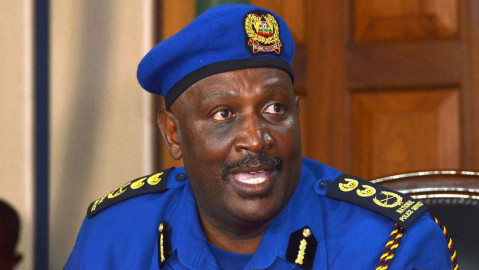
Inspector-General of Police, Hillary Mutyambai, has said 2,000 police officers were ‘mentally unfit’ to serve in the police service.
Speaking when he met bishops and senior clergy of the Anglican Church in Nairobi on Tuesday, Mutyambai said that the findings were established after medical examinations were conducted on police officers.
“We have subjected all the officers to medical examination, and to our surprise, we got a big number. We isolated almost 2,000 police officers who are unfit to do their law enforcement work,” said Mutyambai.
Mutyambai went on to say that a process to manage some of the mentally unstable officershas been initiated.
He highlighted the importance of having stable officers in the service, pointing out the high risk posed, especiallywhen the officers are in the custody of guns.
“The Police Service has now started the process of managing some of them. To remove someone from work (because of medical grounds) is not easy. The government has its processes,” he said.
“Our tool of work is the gun, and when one bullet is discharged, the implications are serious.”
Mutyambai’s remarks come on the back of increased suicide and depression cases among law enforcers.
A task force was established in January to combat the rising mental health cases among police officers which were taking a toll on the officers’ performance.
This was after triggers ranging from financial management, tough work, financial issues, marriage wrangles, transfers, working far from friends and exposure to stresses were established to be the cause.
The task force opened up channels of communication among the officers as part of ways of detecting any form of stress among them. Police commanders were also directed to always be keen to detect any trigger that may lead to depression, stress or mental illness and act immediately.
The programme seeks to empower police officers at all levels, to enhance their sensitivity to issues of stress and trauma they routinely encounter in their professional and personal lives. -BBC






